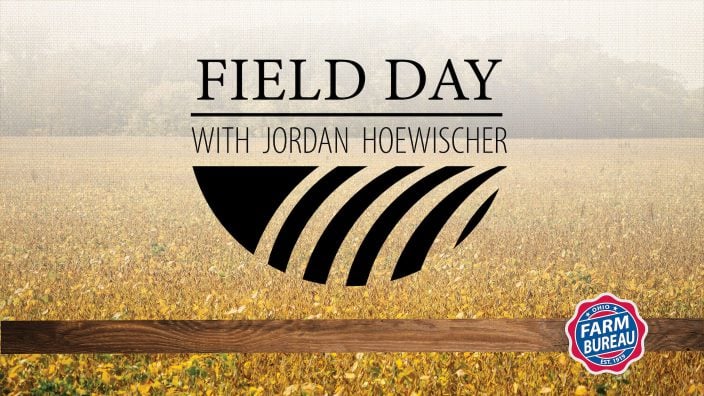Farmer’s Guide to Trucking Regulations available to Ohio Farm Bureau members
The guide includes a farm driver checklist, overview of state and federal regulations and exemptions, CDL qualifications and more.
Read More
On this episode of Field Day with Jordan Hoewischer, Julia Brown, communications and media relations manager for the Ohio Soybean Association, talks about the quickly emerging carbon market and what farmers need to do to prepare for carbon sequestration programs in their area. This episode is the first in a series that will help understand the breadth and depth of carbon program options for Ohio farmers.
Field Day with Jordan Hoewischer is an ongoing series of conversations with experts and leaders who are helping to shape and secure the future of Ohio’s ag industry for generations to come.
Jordan Hoewischer [00:00:01] Welcome to Episode 28 of the Field Day podcast brought to you by the Ohio Farm Bureau Federation. I am your host, Jordan Hoewischer, director of water quality and research with Farm Bureau. Today we are talking about carbon. Carbon 101. So we’re going to go through the journey together of learning about all things carbon sequestration and what farmers can do to pull carbon out of the atmosphere and put it into the ground permanently. This will be episode one of a series of interviews. Today we have Julia Brown from the Ohio Soybean Association. Ohio Soybean has put together a pretty comprehensive website on all the different programing and all the different facts and questions that are out there about carbon. It’s a very fluid topic right now. If you’re involved with agriculture, it’s something that you probably hear every day. You know, some publication somewhere, some radio show, some article every day is telling you something about carbon. So we’re going to kind of go through the paces here. We’re going to talk about some of the questions that pop up, some of the facts that pop up and just try to work our way through it. It’s something that I hope to at least provide some sort of baseline of information for the audience and, you know, kind of bring us all together.
Jordan Hoewischer [00:06:20] What role does ag play in all of this? Well, it’s actually a relatively young sector in carbon markets. Farmers play a role in carbon sequestration through the management of their farm. The few practices that may sequester carbon or cover crops, reduce tillage or no tillage, precision nutrient management. And I’m sure there’s going to be more that emerge over time. A carbon market allows individuals and companies to invest in the environmental projects that reduce carbon emissions. So there’s these back and forth between companies that want to offset some of the things that they’re doing that maybe are releasing carbon in the atmosphere and they want to pay farmers then to put it back into the ground for farmers. These programs facilitate the sale of the carbon credits that the farmers can generate. And so it’s a rare opportunity for us to be able to maybe do the same things that we’ve been doing and get paid for it. Or maybe this allows a little bit of money to actually pay for the things you’ve always wanted to do, like maybe switching to no-till. So that’s just something to take of note. As you know, maybe using this, you know, say you don’t believe in climate change, maybe you don’t really understand this. It’s still a market that you can maybe take advantage of to push your farm forward into the next stage.
Jordan Hoewischer [00:20:30] I wanted to bring you on today as part of a kind of a Carbon 101 episode. Let’s talk about what Ohio Soybean is doing for the carbon market, the carbon topic. Do you want to give us a run through of what you guys have been working on for information on carbon for your members?
Julia Brown [00:20:47] Sure. So start a little bit kind of the history of how this all kind of came about. So back at our March 2021 board meetings, both of our boards, the checkoff and the association, decided to form a joint committee on carbon. You know, they said this is a brand new thing. There’s not a lot of information out there about it. We want to make sure that our farmers know what’s going on. So they had some members from both boards come together. And some of the direction we got as staff from that joint committee was we need to create a resource for farmers that has kind of this basic information where farmers can go start to learn about these carbon markets, not be influenced, but really just get that basic knowledge and start to compare and contrast these different programs. Because what we came to find out is every single program is totally different. You know, they all have different ways of paying and they all have different ways of measuring the outcomes and they all have different ways that they’re going to use your data. So we really wanted to create kind of a basic resource that farmers could go to. So that’s what we did.
Julia Brown [00:21:49] We made a website where farmers can go. So that’s soyohio.org/carbon markets. And again, like I said, we just want to get that basic information. So we’ve got kind of a glossary of terms. There were things that we ran into as staff as we were researching. We had no idea, what does additionality mean? What actually is a carbon credit, that kind of stuff. Then we sort of moved into our FAQ which were questions that we felt comfortable answering as not the carbon experts, but through our research, some questions that we felt comfortable answering. We’ve got another section about the questions that we think farmers need to ask before becoming involved in a program. Before signing on that dotted line, here’s what you need to know and the questions that you need to ask to protect yourself and your operation. And then finally, we’ve just got a comparison where farmers can go see the different programs that are available in Ohio, compare all of those different categories that I mentioned earlier and really get a feel for, if you want to participate in a program, which program might make the most sense for your operation?
Julia Brown [00:27:18] I think the really great thing about these carbon programs is that the practices that farmers are being asked to implement are already practices that a lot of farmers here in Ohio are already doing because they kind of line up with the research that we’ve done around water quality, you know, reduced tillage, cover crops. Those are things that help reduce runoff and keep your soil and your nutrients where they’re supposed to be. So it’s not only good for sequestering carbon, but it’s also good for water quality. So I think that those two aspects can kind of go hand in hand. And I think that is really important for our organization to see that both of those can kind of work together.
Jordan Hoewischer [00:28:00] Yeah, that also allows us to piggyback on the strides we’ve made with OACI. With having environmental groups and conservation groups combined with commodity groups to do certain programming. And so I think it really helps continue to strengthen that bridge that we’ve created to make sure that everyone on all sides are speaking the same language and really pushing for the same programs.
Jordan Hoewischer [00:32:42] What do you think the biggest concern is? I mean, I know we’ve brushed on a couple of things, but is it data privacy? Is it length of program? What do you think the biggest concern is for farmers?
Julia Brown [00:32:52] Length of program definitely is a huge one. I think that’s something that varies greatly between different programs. I saw one on our chart that has you’re in this program for 20 years or there’s some others where maybe you’re in for 10 years. But as part of your contract, you also have to keep doing those practices 10 years beyond that. I think another concern for farmers is the payment. Is the payment actually worth the time, resources, energy that you’re putting into implementing these practices? How many more passes are you going to have to do in order to plant these cover crops? That takes time, energy, money. Is it actually worth it to only get, let’s say, $9 an acre, if that’s what it ends up being? So I think that’s another huge concern. We’ve heard from folks. And I don’t want to speak out of turn here. Again, I’m not the carbon expert, but we have heard from folks that potentially in the future, once the Wild West kind of calms down a little bit, that carbon could actually be worth more. So I think a lot of our farmers are in kind of a holding pattern right now, sort of a wait and see to see if that number might shoot up and might actually be worth it to implement these practices on their on their farms.


The guide includes a farm driver checklist, overview of state and federal regulations and exemptions, CDL qualifications and more.
Read More


Katie Share of Columbus has been named ExploreAg and Youth Development Specialist for Ohio Farm Bureau.
Read More

Mary Klopfenstein of Delphos has been named Young Ag Professional and Ag Literacy Program Specialist for Ohio Farm Bureau.
Read More

The plan has been updated to give sole proprietors access to more rate stability and a smart solution that offers potential savings on health care.
Read More

The American Farm Bureau Federation, in partnership with Farm Credit, is seeking entrepreneurs to apply online by June 15 for the 2025 Farm Bureau Ag Innovation Challenge.
Read More

Adele Flynn of Wellington has been elected treasurer of the Ohio Farm Bureau Federation and now holds the third highest elected office in Ohio’s largest and most influential farm organization.
Read More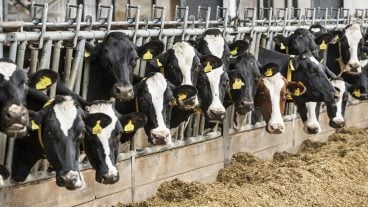
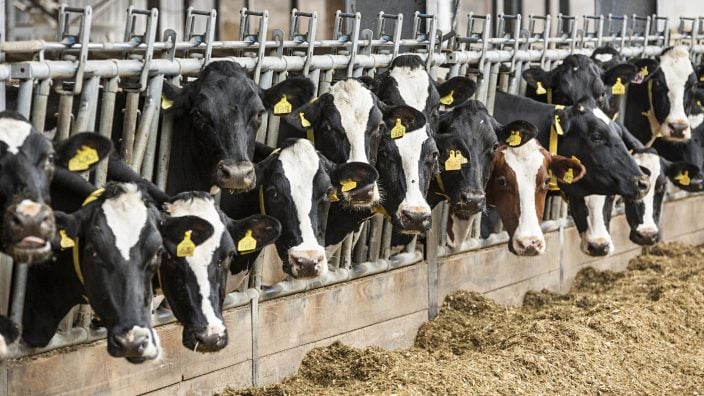
Producers are urged to work with their veterinarian to practice enhanced biosecurity measures and review and limit cattle movements within production systems.
Read More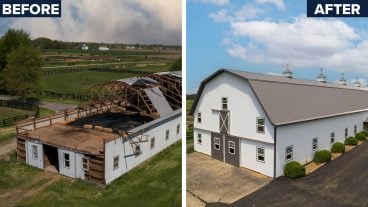
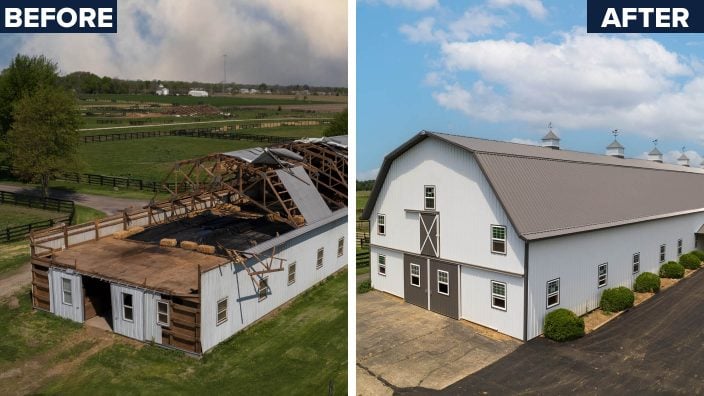
The changing seasons bring with them the need to thoroughly inspect pole barns for any damages that may have occurred during the winter months.
Read More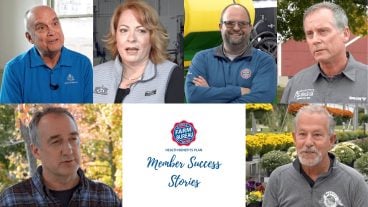
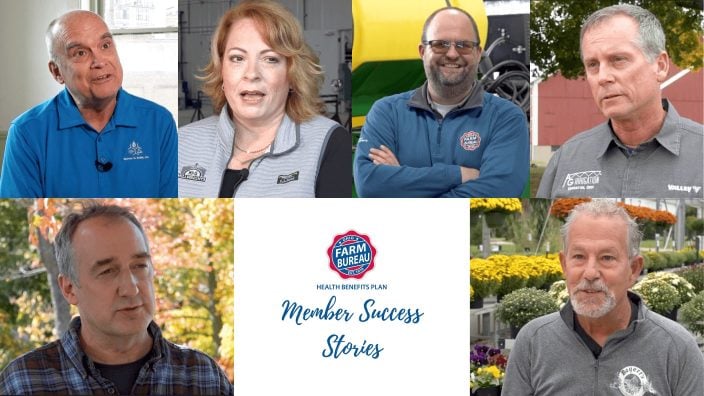
Hundreds of Ohio businesses and sole proprietors are raving about Ohio Farm Bureau’s Health Benefits plan with lower, predictable costs and easy enrollment and administration options.
Read More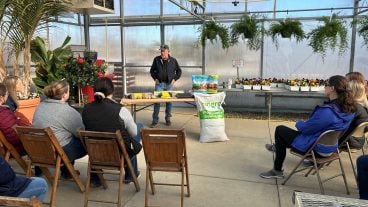
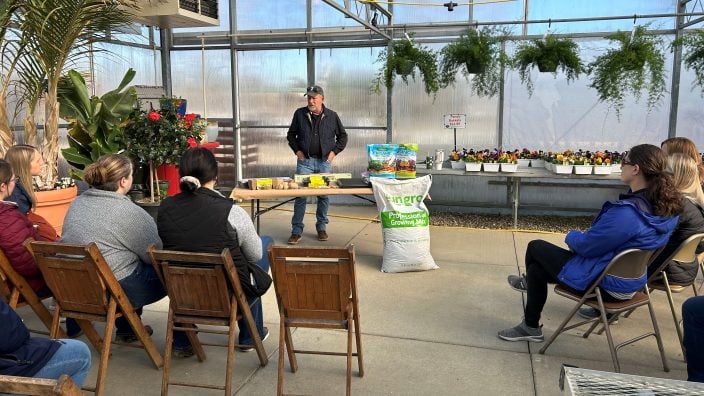
AgriPOWER Class XIV spent a few days in March in Medina and Wayne counties learning more about northern Ohio agriculture from leaders in Ohio Farm Bureau.
Read More